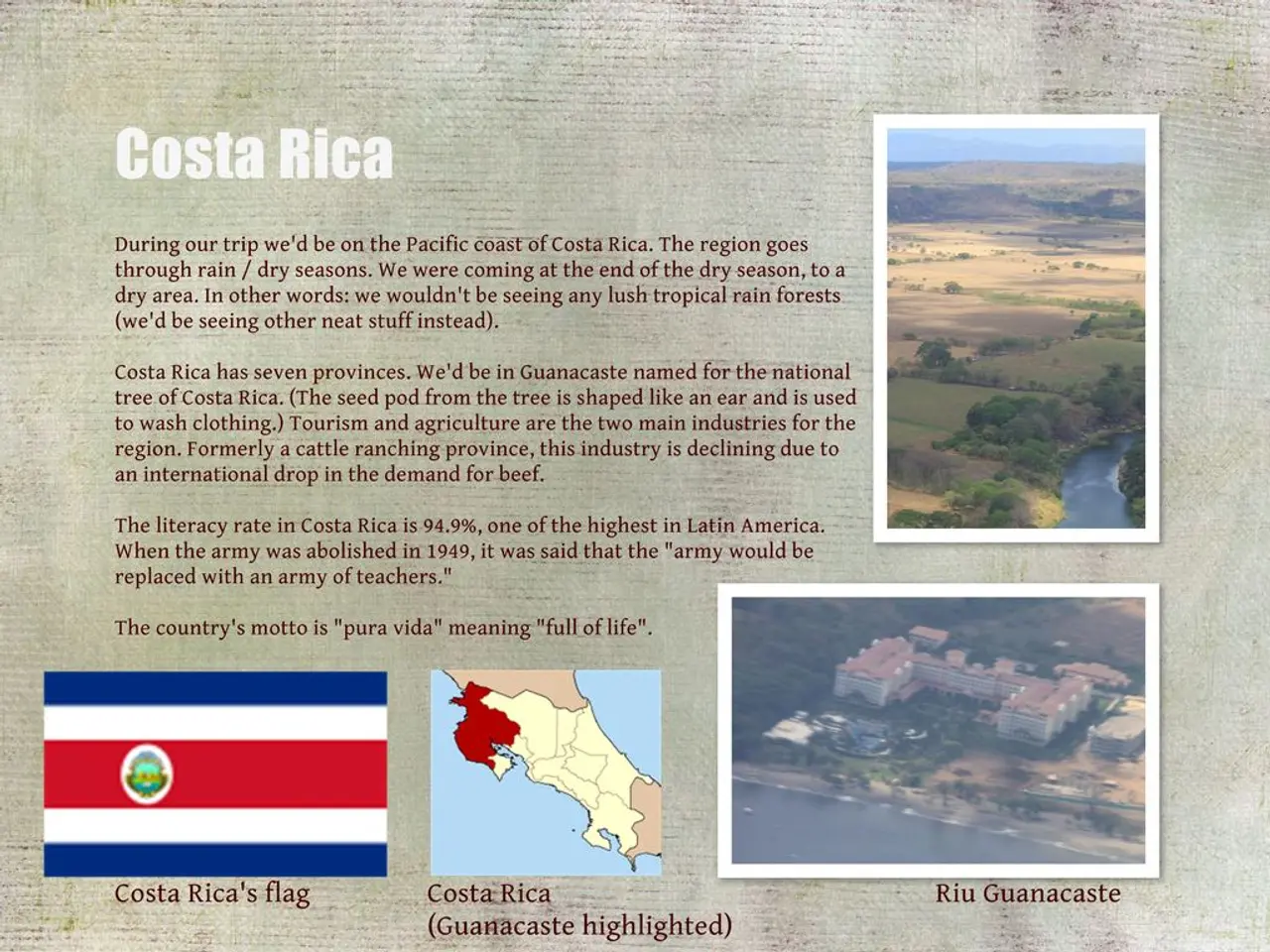Controversial Decision: Donald Trump Initiates Plan to Redesign a Specific Geographical Area
The Gulf of Mexico, a vast and vital body of water, has found itself at the centre of a heated debate. The former President of the United States, Donald Trump, sought to rename the gulf to the "Gulf of America" through an executive order [1]. However, it's essential to understand that this renaming is not without precedent or implications.
Historically, geographic names have been altered for political or cultural reasons. For instance, Zaire became the Democratic Republic of Congo in 1997, and Istanbul was formerly known as Constantinople before being officially renamed in 1930 [3].
The proposed change has elicited mixed reactions. Supporters view it as a patriotic move, while critics see it as unnecessary provocation. The announcement has sparked a flurry of opinions on social media platforms, ranging from enthusiastic endorsement to outright ridicule [6].
However, it's crucial to note that Trump cannot unilaterally rename the Gulf of Mexico. As an international body of water shared by the U.S., Mexico, and Cuba, names are conventionally recognized through international consensus, not solely by one country or its president [1].
Despite Trump's attempts, U.S. legislative action has been limited. The U.S. House Rules Committee advanced a bill to codify Trump's executive order into U.S. law, but this only affects U.S. official usage and government publications [2]. Other countries bordering the gulf and international entities are not bound to adopt this change.
If the name change were to be implemented, cartographers would need to update maps globally, potentially leading to revised educational content in schools across America. However, outside the U.S., cartographers and publishers may continue to use "Gulf of Mexico" because international geographic names rely on shared recognition and agreements [4].
The renaming can be seen as a unilateral assertion of sovereignty over an international body of water, which maritime experts consider problematic. It may cause diplomatic friction with Mexico and Cuba, who have historical and economic ties to the historically recognized name "Gulf of Mexico" [1]. The renaming could complicate international cooperation on maritime issues, oil production, and fishing rights.
Without international agreement, the new name will not be universally accepted. Global organizations like the International Hydrographic Organization would likely continue to recognize the traditional name [1]. In summary, while Trump can influence U.S. government naming and documentation, the Gulf of Mexico is unlikely to be renamed universally, and the move risks diplomatic tensions and confusion in global usage [1][2][4].
References:
- CNN
- CBS News
- Britannica
- The Washington Post
- NOAA
- The debate surrounding the potential renaming of the Gulf of Mexico, particularly with Donald Trump's proposal to rename it the "Gulf of America," highlights the intersection of environment, technology, and policy-and-legislation with politics and general news.
- The historical precedent of geographic names being altered for political or cultural reasons, such as Zaire becoming the Democratic Republic of Congo or Istanbul being renamed from Constantinople, sheds light on the implications and complexities of attempting to rename the Gulf of Mexico.








